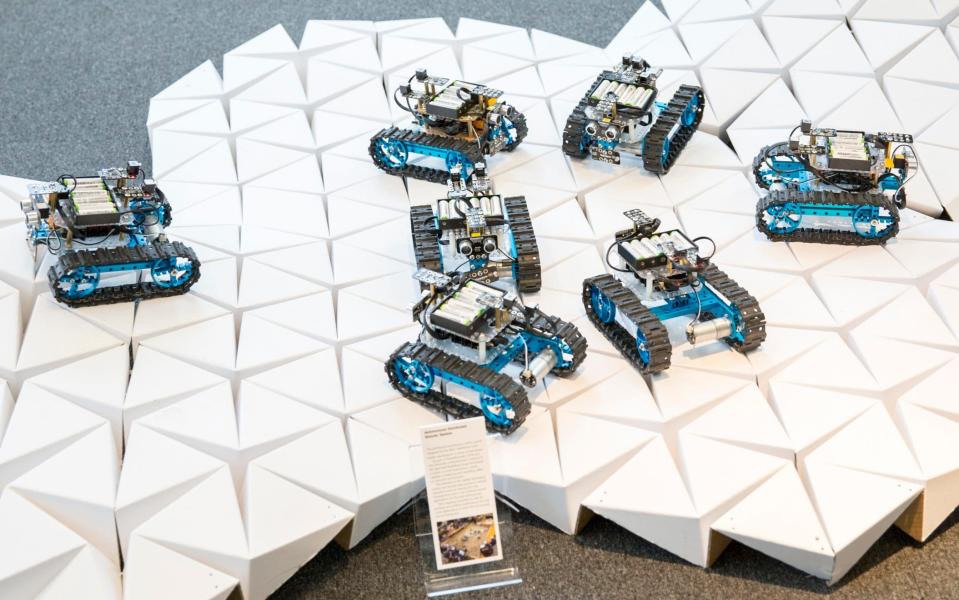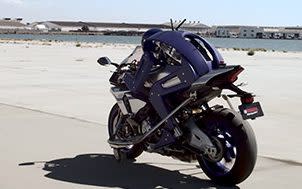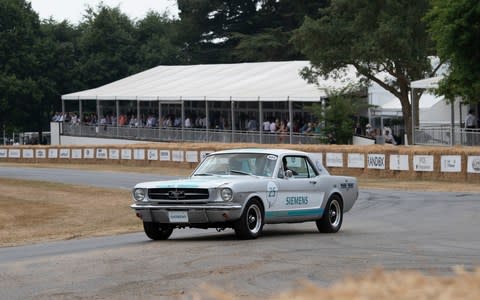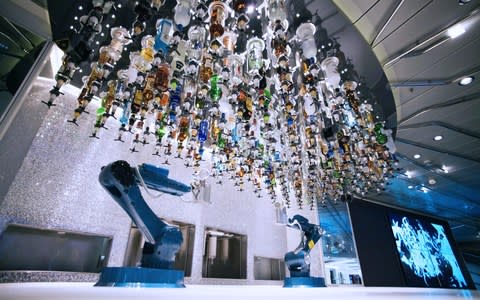Goodwood Festival of Speed 2018: Future Lab review

The 2018 Goodwood Festival of Speed’s Future Lab – 50 per cent bigger and significantly wider in scope than last year – showcased fascinating technological developments in everything from motorsport to healthcare.
Largely driven by advances in digital software rather than in material science or nut-and-bolt engineering, some of the supposed applications were obviously intended to attract popular attention.
Thus Fuel 3D, for example, presented its medical-grade scanning application for smartphones as a means of taking three-dimensional selfies rather than as a tool for designers and engineers, while Yamaha displayed its MotoBOT, a humanoid robot motorcyclist which (who?) has already achieved a speed of 200kmh and aims to match Valentino Rossi’s lap times around a circuit, the underlying ambition being to develop a robot capable of operating a machine originally designed for humans; perhaps a greater challenge would be to program the robot rider to perform a victory celebration worthy of the Italian MotoGP champion.
Several other exhibitors, Samsung being a prominent example, promoted their new ideas and products with virtual reality experiences (that’s showbusiness). However, whereas in past decades our visions of the future might have relied on imagination, speculative technology and wishful thinking, a striking aspect of this year’s Future Lab was the imminent reality of the technology on display.
This future is much closer than we might realise. Some proposals were immediately intriguing; the Griiip one-make single-seater race series aims to reduce set-up and development costs by sharing telematic data among all the competing teams, guaranteeing close racing whilst also attracting a digitally-engaged audience with multiple data and video feeds and a gaming function that permits virtual participation in a real race.

It’s a concept that might prove more attractive than the Roborace series for autonomous cars, also promoted at Future Lab, which undoubtedly presents a fascinating challenge for software engineers but might be less interesting for spectators.
The Goodwood crowds were certainly intrigued by the Roboracer’s debut on the 1.16-mile hillclimb course – a feat also accomplished by fellow Future Lab exhibitor Siemens, whose software was the first to pilot a driverless car (in this case a classic Ford Mustang) up the hill.
However, given a widespread perception that Formula One has become progressively more predictable and less interesting as the role of the driver has been reduced, not to mention the mobs of autograph hunters that surround the F1 stars at every Festival, one must wonder how many people would follow a series in which the drivers were removed altogether.

Nevertheless, whether it manifests itself in the form of autonomous cars, ANYmal’s robot dog or Foster & Partners’ vision of a 3D-printed Martian colony built by swarms of six-legged mechanical elephants, all of which were showcased at Future Lab, so-called artificial intelligence is central to our present view of the future.
It has been suggested that automation will make entire sectors of the human workforce redundant, with incalculable socio-economic consequences, and there is no denying that the supposed efficiency savings would be attractive to any organisation involved in transport, for example.
One of Future Lab’s less overtly glamorous but more thought-provoking exhibitors was Einride, a Swedish engineering company that proposes a huge fleet of driverless, battery-electric trucks to handle long-haul goods transport. Einride’s inventor, founder and president, Robert Falck, suggests that such vehicles could make rail freight completely obsolete within a decade, partly because trucks offer greater flexibility and partly because rail operators require either massive freight volumes or huge public subsidies to turn a profit.

What’s more, he says that the road network could be much better used by a fleet of environmentally sustainable, autonomous vehicles travelling at night and unconstrained by legal limits on driver hours. He insists that such a wholesale shift from rail to road would not necessarily increase traffic congestion: “Utilisation of the road network is currently less than five per cent,” he says. “We don’t have a congestion problem, we have a peak problem.”
Reassuringly for the petrolheads gathered at Goodwood, Falck believes that individuals will still want to own and drive private cars, but he reckons that the business case for autonomous goods vehicles makes their adoption inevitable, and that society must radically change the way it works: “This is the biggest disruptive change in our lifetime – bigger even than digital technology,” he declares.
However, although such vehicles would put long-distance truck and train drivers out of work, he thinks that local delivery jobs are more secure than most for the foreseeable future: “I would rather trust a computerised doctor than a computerised delivery driver.”
This rather flies in the face of Future Lab partner DHL’s promotion of delivery drones, but the potential for automated healthcare was indeed another theme of Future Lab, with Sensure’s wearable biometric monitors claiming to reveal the emotional state of drivers on the hillclimb course and Randox’s Biochip Array Technology enabling dozens of diagnostic tests to be carried out from a single patient sample.

Whether driven by market economics or public policy, the advance of artificial intelligence is an issue we will all have to grapple with in the not-so-distant future.
However, doctors, long-distance lorry drivers and countless other workers soon to be replaced by computer-controlled devices might not be very happy if they seek to drown their sorrows at a bar served by one of Italian company Makr Shakr’s automated mixologists – repurposed and reprogrammed industrial robots capable of creating a mind-boggling range of cocktails, but quite unable to listen sympathetically to late-night sob stories from melancholy barflies.
For tips and advice, visit our Advice section, or sign up to our newsletter here

 Yahoo News
Yahoo News 